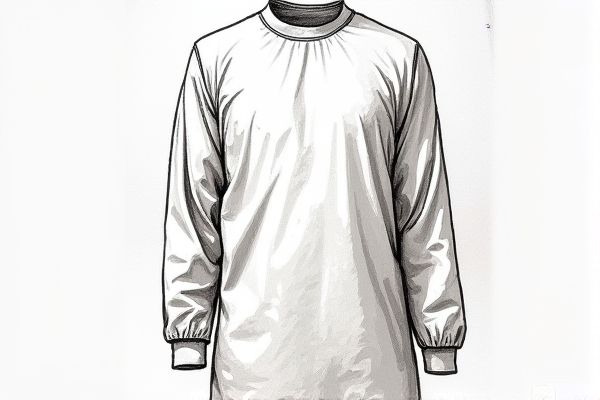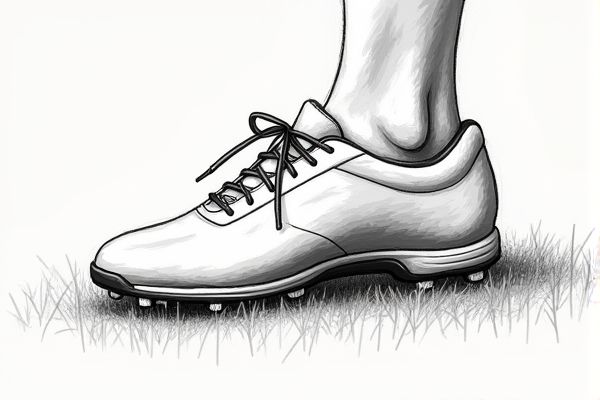Tunics have been a timeless addition to wardrobes, effortlessly blending comfort with style. As fashion evolves, numerous brands have emerged, offering tunics that cater to various tastes and needs. From luxurious fabrics to trendy designs, these brands ensure that there's something for everyone. To discover the best brands for tunics, continue reading below where we explore the top contenders.

Illustration of tunics
Best brands of tunics in 2025
Free People
Free People is a renowned brand known for its eclectic and trendy clothing, particularly excelling in the production of high-quality tunics. With an estimated annual revenue of $2.6 billion and a strong presence in global markets through its own retail locations and top department stores, Free People caters to women who embody femininity, spirit, and creativity through fashion. The brand's success is also evident on platforms like Poshmark, where it generates significant revenue, selling over 26,000 items in a single month. Free People's designs often blend vintage collections with the latest trends, making it a favorite among consumers. However, the brand has faced criticism for copying designs from smaller, sustainable fashion brands.
Anthropologie
Anthropologie is renowned for its stylish and unique clothing lines, particularly its tunics, which are a staple in the brand's offerings. Since its debut in 1991, Anthropologie has consistently delivered high-quality, fashion-forward pieces, with its sales growth highlighting its success, such as a 5.8% increase in sales in the third quarter of 2024. The brand's ability to inspire and engage customers through its catalogs and online platform has been a key factor in its success, with customers spending an average of 75 minutes shopping in stores. Anthropologie's revenue per square foot is notably high, at $995, indicating strong consumer demand for its products. The brand's online presence is also robust, with a significant revenue of $131,238,854, showcasing its competitive edge in the fashion industry. For more information, visit their official website.
Eileen Fisher
Eileen Fisher is renowned for its high-quality, sustainable tunics, reflecting the brand's commitment to timeless and eco-friendly fashion. Since its inception in 1984, Eileen Fisher has focused on natural fibers and simple, versatile designs. The brand's 'Tiny Factory' initiative, launched in 2016, transforms reclaimed garments into unique, economically viable pieces, with 55 to 65 percent of received garments being resold as part of the Eileen Fisher Renew collection. This approach has generated significant revenue, such as $2.5 million to $3 million in 2016, and has expanded distribution through partnerships like the one with Nordstrom. Eileen Fisher's tunics, made from responsibly sourced materials like Tencel™ Lyocell fiber, are designed for consistency and inclusivity, available in an extended size range from XXS to 3X.
J.Jill
J.Jill, a fashion brand catering to women aged 40-plus, is notable for its high-quality tunics, although it has faced recent sales challenges due to consumer price sensitivity. In the first quarter of 2023, J.Jill's total net sales dropped by 4.9% to $149.4 million, with e-commerce sales, which account for 45% of total sales, declining by 7.7%. Despite this, the brand has seen success with its Wearever products, which resonate with younger customers looking for workwear. J.Jill has also improved its gross margin to 72% from 69.7% and reduced inventory by 14.9% through strategic markdowns. The brand continues to leverage survey data to tailor its products and in-store experience to its Gen-X audience.
Madewell
Madewell, known for its high-quality denim and trendy staples, has also established itself as a reputable producer of tunics, appealing to its core customer base of young professionals and fashion-conscious individuals. Since its inception in 2006, Madewell has built a loyal following, with 65% of its revenue coming from the 18-24 year old female demographic. The brand's commitment to classic yet trendy designs, such as the Hampden Stripe Tunic, aligns with consumer desires for both staples and fashionable pieces. In 2018, Madewell's annual sales reached $614 million, with denim and related items making up over half of its revenue. By incorporating trend forecasting, Madewell continues to innovate and meet the evolving fashion needs of its customers.
LOFT
LOFT, a prominent brand under Ann Inc., is renowned for its high-quality and stylish apparel, including a wide range of tunics that cater to women's fashion needs. With over 650 full-price and outlet stores across Canada, Mexico, and 46 US states, LOFT has established a strong retail presence. The brand's commitment to sustainability is evident through its membership in the Sustainable Apparel Coalition and the use of the Higg Index to measure and improve sustainability in its operations. In terms of revenue, LOFT generated $344.4 million in estimated annual revenue, with a significant portion coming from its online sales, which saw a 5.7% growth over the past three months as of October 2024. LOFT's online platform, loft.com, outperformed competitors in revenue, transactions, and sessions, highlighting its strong market position.
Urban Outfitters
Urban Outfitters, although not specifically highlighted as a leading producer of tunics, has demonstrated strong overall performance in its retail segment, with the company reporting record quarterly sales of $1.27 billion in Q2 2023, a 7.5% increase. However, the Urban Outfitters brand itself saw a 14.1% decrease in sales during that period, attributed to negative performance in North America and Europe. Despite this, the brand has shown improvement in certain segments, such as women's and men's apparel during the back-to-school season. The company's other brands, Anthropologie and Free People, have seen significant growth, with Anthropologie increasing sales by 10.6% and Free People by 26.9% in the same quarter. Urban Outfitters continues to focus on improving its overall performance and inventory management.
J.Crew
J.Crew is renowned for its high-quality and stylish apparel, including tunics, which are a staple in their collections. Known for their impeccable design, fabrics, and craftsmanship, J.Crew tunics appeal to customers seeking both classic and trendy pieces. In 2024, J.Crew generated significant revenue, with $69,724,746 in online sales, indicating a strong market presence. On Poshmark, J.Crew tunics and other items have a robust resale market, with the brand ranking 8th out of 1000 brands and generating $767,714 in revenue over a month. This performance highlights J.Crew's enduring popularity and the appeal of their tunics.
Banana Republic
Banana Republic is renowned for its high-quality, versatile tunics, which have contributed to its strong performance on platforms like Poshmark, where it achieved a total revenue of $137,697 with 5,692 items sold in the last month. The brand's tunics, along with other apparel, have seen a 25% year-over-year sales growth in Q2 2022, driven by workers returning to offices and opting for dressier clothing. Known for its modern and expertly crafted collections, Banana Republic offers tunics that appeal to a broad customer base, with an average sale price of $24 on Poshmark. The brand's commitment to sustainability and biodiversity also enhances its appeal, making it a favorite among consumers looking for both style and ethical fashion. With over 400 company-operated and franchise stores globally, Banana Republic continues to be a premier destination for attainable luxury and heritage classics.
Zara
Zara stands out as a leading producer of tunics due to its efficient and agile supply chain, which enables the company to introduce new designs every two weeks and achieve 12 inventory turns per year, significantly outpacing competitors. This rapid production cycle allows Zara to offer a wide variety of styles, with around 2,000 to 4,000 clothing items in its stores, including a diverse range of tunics. The company's strategy of pricing items based on market demand rather than production cost helps in selling 85% of its items at full price. Zara's lean production and frequent, small-batch deliveries reduce deadstock and excess inventory, making it highly efficient. As of 2024, Zara operates over 2,200 stores globally, ensuring widespread availability of its fashionable tunics. For more information, visit their official website: Zara's website.
















Leave a Reply
Your email address will not be published.